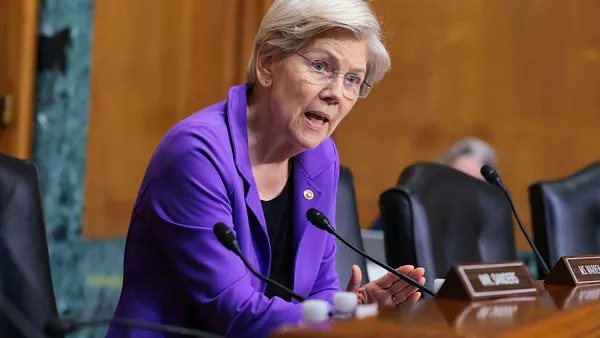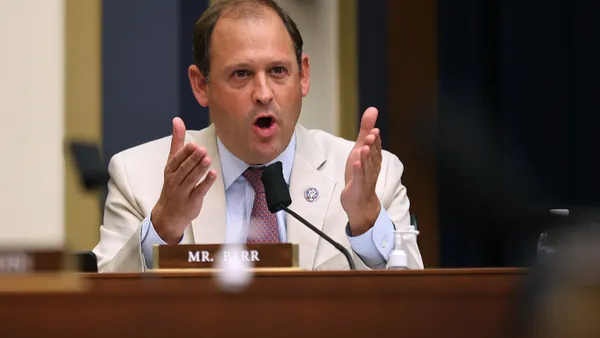A one-time TD employee based in Florida faces a charge of conspiracy to commit money laundering, the U.S. Justice Department said in a release Wednesday.
Leonardo Ayala, 24, who worked at a TD branch in Doral, Florida, from February to November 2023, issued dozens of debit cards linked to accounts opened by another TD employee in the names of shell companies, and received bribes for that work, the DOJ alleged. The accounts were then allegedly used to launder millions of dollars in proceeds from narcotics through cash withdrawals at ATMs in Colombia, the DOJ asserted.
“Ayala repeatedly and corruptly issued numerous debit cards for TD Bank accounts originally opened in New Jersey, and had those debit cards mailed to an address in New Jersey, despite knowing that he was being directed to do so by individuals that were not the identified account holder,” prosecutors said in a criminal complaint filed Tuesday.
Ayala allegedly received $2,900 from a Venezuelan national through a money-transfer app, court documents allege. He faces up to 20 years in prison, if convicted, and a fine of up to $500,000.
“We identified the activity, reported it, and cooperated closely with authorities in their investigation. We continue to actively support their efforts,” TD spokesperson Elizabeth Goldenshtein said in an email Wednesday to Bloomberg.
TD in October agreed to pay more than $3 billion in penalties after agencies probed deep into the bank’s anti-money laundering safeguards.
The DOJ found that millions of dollars tied to the illicit drug fentanyl funneled through the bank, according to a Wall Street Journal report in May.
Ayala appeared in federal court Tuesday in Miami. His future court appearances will be in New Jersey, the DOJ said. Ayala declined to comment to Bloomberg when reached by phone.
He is not, however, the first former TD employee to appear in court in connection with TD’s AML woes.
Gerardo Aquino Vargas, a former Hollywood, Florida-based retail banker for TD, allegedly provided a co-conspirator with at least 28 debit cards — netting Aquino Vargas $5,600 in bribes — and claimed he charged them a lower rate than he charged others for the same illegal services, according to court documents from June.
“Man, to me, this isn’t business. Honestly, I was thinking $200 per client with you guys,” Aquino Vargas said to the co-conspirator in Spanish, according to court documents. “Obviously, I gave you 28 cards. That $200 I’m giving you guys, I’m not doing anymore. With other people, it’s $500-$800 per account man. You guys know that you are my thing.”
The DOJ investigation into TD’s AML deficiencies was spurred by a 2021 criminal case in which federal prosecutors charged New York City-based Da Ying Sze with coordinating a scheme that laundered at least $653 million in proceeds from illegal fentanyl.
DOJ agents had followed members of Sze’s group during their investigation. In one day, Sze’s team stopped at three TD branches, and DOJ prosecutors allege Sze and others provided gift cards and other bribes worth at least $57,000 to bank employees.
TD failed to monitor $18.3 trillion in customer activity, allowing three laundering networks to transfer hundreds of millions of dollars through TD accounts, the DOJ said in October.
Beyond fines, the scandal has had far-reaching consequences for TD. It reportedly played a role in the collapse of the bank’s proposed acquisition of Memphis, Tennessee-based First Horizon. The deal’s termination stunted the Canadian bank’s strategy for growth in the southeastern U.S.
The episode may have also hastened executive turnover at the top of the bank. Longtime CEO Bharat Masrani announced in September he would step down in April 2025, making way for the bank’s then-head of Canadian personal banking, Raymond Chun, to take the top role.
The bank’s U.S. retail business is also under a $434 billion asset cap imposed by the Office of the Comptroller of the Currency.















